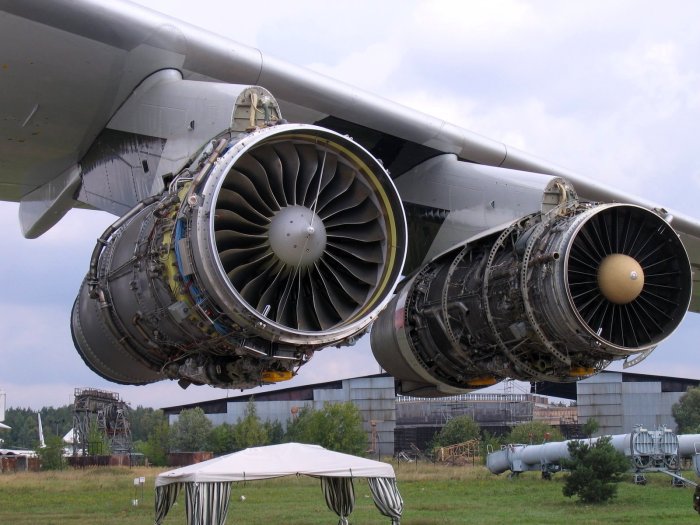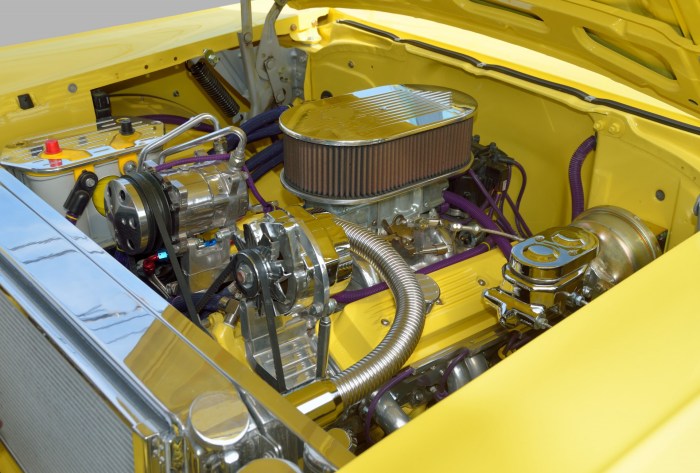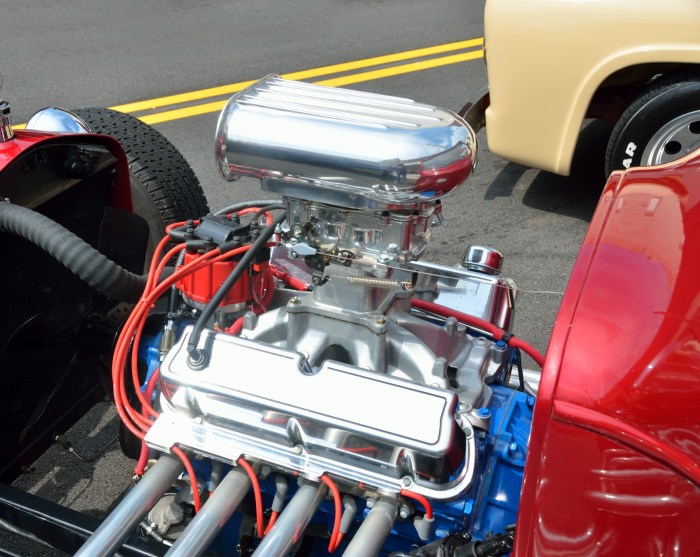Engine making noise while driving draws attention to a critical issue that every car owner should understand. Unusual sounds emanating from your vehicle can signal potential problems lurking beneath the surface, and recognizing these noises is the first step in safeguarding your engine’s health. In this guide, we’ll delve into the causes, types, and implications of engine noise, and arm you with the knowledge to tackle these symptoms head-on.
From the subtle pings of engine components to the alarming rattles that can indicate serious issues, understanding engine noises can enhance your ability to maintain your vehicle effectively. We’ll explore the various sounds that engines produce, their meanings, and how to diagnose them accurately, while emphasizing the importance of regular maintenance to prevent these noises from developing in the first place.
Engine Making Noise While Driving
Driving with a noisy engine can be a source of concern for any vehicle owner. It often indicates underlying issues that may require immediate attention. Recognizing the causes, types, and potential solutions to engine noise can help you maintain your vehicle’s performance and longevity. This article explores various aspects of engine noise, from its causes to repair options, ensuring you’re well-informed about the health of your engine.
Causes of Engine Noise
Engine noise can stem from numerous factors, each linked to different components of your vehicle. Understanding these causes is crucial in diagnosing potential problems early.
- Engine Components: Various parts of the engine, such as the pistons, valves, and timing belt, can contribute to noise. For example, wear and tear on the pistons can cause rattling sounds, while a loose timing belt may create a whining noise.
- Poor Maintenance: Neglecting regular maintenance can lead to issues like low oil levels, which can cause increased friction and noise. Regular oil changes and inspections can prevent such scenarios.
- Fuel Quality: Using low-quality fuel can result in knocking noises, as impurities can disrupt the normal combustion process in the engine.
Types of Engine Noises

Different noises produced by your engine can serve as indicators of specific problems.
- Knocking Sounds: Often indicative of engine knocking, this sound can signal that the fuel is igniting at the wrong time, leading to potential engine damage.
- Rattling Noises: A rattling engine can suggest loose components or worn-out parts that need to be tightened or replaced.
- Whining Noises: Whining can point to issues with the alternator or the power steering pump, where wear and tear may be affecting performance.
Diagnosing Engine Noise
Identifying the source of engine noise while driving involves a systematic approach.
To effectively diagnose engine noise, listen attentively and try to associate the sound with specific driving conditions, such as accelerating, decelerating, or idling.
- Listening Techniques: Pay attention to when the noise occurs. Is it constant or intermittent? Does it change with acceleration?
- Isolation Methods: Use a mechanic’s stethoscope or a simple metal rod to pinpoint the source of the noise by placing it on different parts of the engine.
- Tools Required: Basic tools like an OBD-II scanner can help diagnose any electronic issues that might contribute to engine noise.
Engine Noise and Performance
Engine noise is often linked with vehicle performance, and understanding this connection is key to maintaining your vehicle.
- Correlation with Performance: Unusual engine sounds can indicate performance issues, such as reduced power or efficiency.
- Assessing Issues: If you notice a performance drop alongside strange noises, it may be time to investigate further.
| Performance Issue | Engine Noise Type |
|---|---|
| Reduced Power | Knocking |
| Poor Fuel Efficiency | Rattling |
| Difficulty Starting | Whining |
Preventative Measures
Taking proactive steps can help minimize engine noise and maintain optimal performance.
- Regular Maintenance: Consistent oil changes and regular inspections can prevent many issues related to engine noise.
- Component Checks: Regularly check belts and hoses for wear and replace them as needed to avoid potential noise issues.
- Fuel Quality: Always use high-quality fuel to ensure smooth engine operation and reduce knocking noises.
Repair Options

When faced with engine noise, various repair methods can be considered.
- Mechanical Repairs: Addressing worn-out components may involve replacing or repairing parts such as bearings or gaskets.
- Engine Rebuild: In severe cases, an engine rebuild may be necessary but can be costly.
- Routine Maintenance Repairs: Regular maintenance can often resolve minor issues before they escalate.
| Repair Method | Cost | Effectiveness |
|---|---|---|
| Component Replacement | Moderate | High |
| Engine Rebuild | High | Very High |
| Routine Maintenance | Low | Moderate |
When to Seek Professional Help
Recognizing when to consult a mechanic is crucial in preventing further damage.
- Warning Signs: If noise becomes louder or more frequent, it’s time to seek professional assessment.
- Ignoring Noises: Delaying repairs can lead to more severe engine damage and costly repairs.
- Preparing for a Mechanic Visit: Document the noises and any correlated issues to provide a clear picture for the mechanic.
Case Studies, Engine making noise while driving

Real-life examples can provide insight into the various issues related to engine noise.
- Case Study 1: A vehicle with persistent knocking was found to have improper fuel octane levels, which were corrected, resolving the noise.
- Case Study 2: A rattling sound led to the discovery of loose exhaust components, which were tightened, eliminating the issue.
- Case Study 3: An engine rebuild was necessary for a car that experienced severe performance decline due to neglect.
| Case Study | Issue | Resolution |
|---|---|---|
| Case Study 1 | Knocking Sound | Fuel Adjustment |
| Case Study 2 | Rattling Sound | Tightening Components |
| Case Study 3 | Performance Decline | Engine Rebuild |
Final Wrap-Up: Engine Making Noise While Driving
In summary, being attuned to engine noises while driving is not just about comfort; it’s about performance and safety. Recognizing the signs early can lead to timely repairs and help avoid costly breakdowns. By following the preventative measures Artikeld in this discussion and knowing when to seek professional help, you can ensure that your engine runs smoothly and remains in optimal condition for years to come.